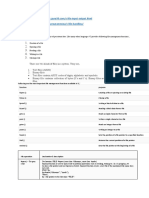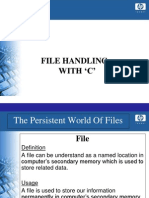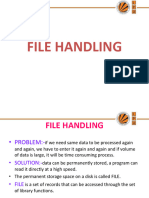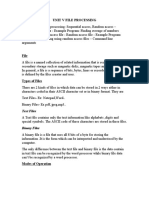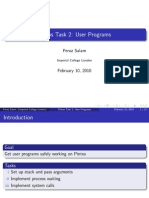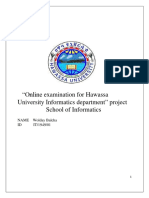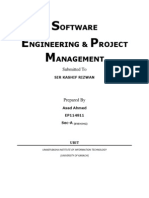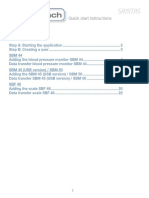0% found this document useful (0 votes)
64 views17 pagesC File Handling: Operations & Functions
The document discusses files and file handling in C programming. It defines two types of files - text files which contain ASCII codes and binary files which contain data as bytes. The main file operations in C are creating/opening a file, reading from a file, writing to a file, and closing a file. These operations are performed using file handling functions like fopen(), fread(), fwrite(), and fclose(). The document provides examples of using various file handling functions to perform common file operations in C like reading characters, strings, and integers from a file and writing characters, strings, and integers to a file.
Uploaded by
habee.949Copyright
© © All Rights Reserved
We take content rights seriously. If you suspect this is your content, claim it here.
Available Formats
Download as DOCX, PDF, TXT or read online on Scribd
0% found this document useful (0 votes)
64 views17 pagesC File Handling: Operations & Functions
The document discusses files and file handling in C programming. It defines two types of files - text files which contain ASCII codes and binary files which contain data as bytes. The main file operations in C are creating/opening a file, reading from a file, writing to a file, and closing a file. These operations are performed using file handling functions like fopen(), fread(), fwrite(), and fclose(). The document provides examples of using various file handling functions to perform common file operations in C like reading characters, strings, and integers from a file and writing characters, strings, and integers to a file.
Uploaded by
habee.949Copyright
© © All Rights Reserved
We take content rights seriously. If you suspect this is your content, claim it here.
Available Formats
Download as DOCX, PDF, TXT or read online on Scribd
/ 17
































